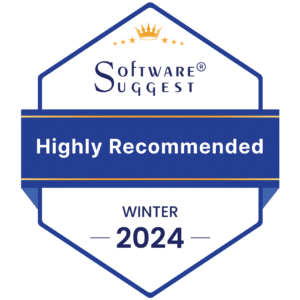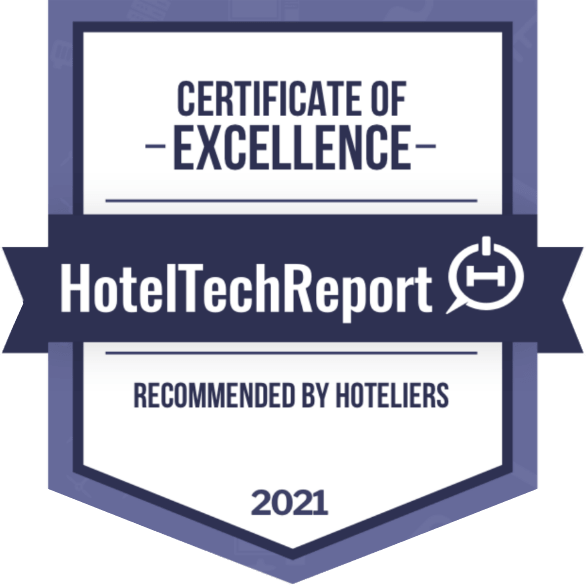Table of Contents
ToggleExceptional guest experience can elevate a hotel’s reputation and increase revenue and repeat stays. An effective strategy that can help is to upsell additional services or products relevant to customers. According to studies, it can cost five times more to attract new customers than to retain existing ones. Therefore, upselling in hotels is not only influential but cost-efficient as well.
Even without COVID-19, profitability in the hotel industry is still a significant concern due to factors like:
- Increased dependence on web-based travel agencies
- The growth of tough competition
- Rising customer demands
Sit tight, for you will learn some of the essentials for upselling in hotels in this article!
What is Upselling?
Upselling is a sales strategy that offers consumers additional services or add-ons to increase revenue. The additional services can come in the form of room upgrades, late check-outs, pet fees, discount spa treatments, and so on. Upselling can mutually benefit the guests as well as the hotel. Guests can tailor their stay at your hotel to their interests and increase the overall revenue generated for your hotel. Upselling is most effective if you know about the customer’s interests and what they might value.
Why is Upselling Important in the Hotel Industry?
Upselling in hotels could be beneficial since it enables hotels to generate additional revenue from every booking they receive. By doing this, hotels can increase their income since they won’t have to max out their occupancy to fulfill their profit goals consistently.
Upselling in hotels is crucial for several reasons:
- You can create stronger bonds with your clients.
- You can seamlessly increase revenue.
- Long-term, lucrative customer relationships are possible.
- Personalizing upselling increases the likelihood that the guest will return.
Most of the profits from upselling in hotels come from upgrading rooms or offering add-ons or packages to existing accommodation reservations. Many customers would be willing to pay more if an extra service enhanced or complemented their immediate stay.
A practical approach is asking about any requests or suggestions they might have in an email sent before the guests arrive. Room upgrades are a common upsell strategy because guests have already decided to stay at your hotel. It also becomes easier for the hotel staff as no significant preparations are required. As per a report, room upgrades can also offer the most considerable profit margins. As a result of being pleasantly delighted by the option of an upgrade offer and no longer being in the mindset of saving dollars as they were when booking their vacation, most guests are frequently amenable to accepting it.
Additionally, you can provide unique amenities in the accommodation. For example, if you know a guest has checked in for a romantic getaway, you can offer them a discount package on spa treatments for couples. Or if there is a group booking, your hotel staff can upgrade them to a room with more floor space overall.
Be sure to present these offers before the guest arrives. To evaluate if you can clinch the deal, communicate pre-stay emails on the day or up to a week before the guests’ predetermined arrival.
Upselling in Hotels: A Step-by-Step Guide
The time, tone, and consistency with which you upsell are crucial to the effectiveness of your efforts. You do not want to sound like you’re trying to sell something actively. Prioritize the guest experience and genuinely provide exceptional customer service. Forcing an upsell can leave a wrong impression and reduce repeat stays.
However, you can use multiple upselling techniques to provide a seamless guest experience without being too pushy. Let’s examine each of the following hotel upselling techniques.
Decide Who Your Demographic Is:
Determine which consumers would be ideal upselling targets in the first place, such as business travelers, couples on their honeymoon, tourists, etc. Only some guests are suitable candidates for an upsell; therefore, you should not try to upsell a client who doesn’t need it.
Understanding your customers is crucial. An effective property management system can help you provide insights into your guests and carve out the right offers for them.
For example, if your PMS indicates a booking with adults and children, you can offer them a family excursion deal to a local tourist destination. A personalized offer like that will help build lasting relationships and increase the possibility of repeat stays at your property.
Choose the Appropriate Moment:
It is crucial to upsell to guests at the appropriate moment. This strategy helps put relevant offers in front of guests at the right time, increasing the chances of upselling and boosting your profits. There are multiple stages in which you can ensure your offers are highlighted in front of guests.
Consideration: In this stage, customers are most likely browsing the best deals available and comparing where your property stands in contrast to your competitors. Ensure you have mentioned various packages and discounts on your website or an integrated booking engine. Upsells like breakfast, valet parking, or pet fees can be decisive in choosing your property over your competitor.
Pre-arrival: Once the booking has taken place, sending guests a personalized email or text can increase trust and the chances of upselling. You can notify your guests about pre-arrival services such as early check-in, airport pick-up, or a city tour package. Personalized experiences increase the chance of guests booking additional services to create a seamless customer experience.
Arrival: On arrival day, you can send your guests a link where they can self-check-in. Your guests can smoothly check into your hotel in just a few minutes, increasing your front desk’s efficiency. During the self-check-in process, you can showcase options for room upgrades, valet parking, and certain room services. Guests can then directly contact the front desk for any of these offers.
During Stay: After the guests have checked in and made themselves comfortable, you can send them a personalized message asking them if they require any additional services that might enhance their experience at your property. You can use services like spa treatments, a city tour, or even a late check-out as enticing offers. Understanding what is relevant to your customer will be crucial during this stage. For example, if your guest is on a business trip, there are better ideas than trying to upsell a couple’s spa treatment. Instead, you can offer them express laundry or flexible departure times.
Post Stay: Once your guest leaves your hotel, you need to follow up and ask how their stay was and what suggestions they have for improving your operations. These insights give you an idea of how you can better your customer experience and ensure your customers are getting the most benefit out of their stay at your property. You can use these suggestions to send relevant offers to your customers periodically. For example, suppose your guest stayed at your hotel during the off-season. In that case, you can encourage a visit to your property during the holiday season with loyalty packages. This strategy is an excellent opportunity to increase revenue and repeat stays.
Identify Guest Interests:
A valuable method for accomplishing this is to ask your guests about any choices or requirements they might have in an email sent to them before their arrival. This enables you to upsell services based on what you learn about their preferences. For instance, some people might enjoy spa treatments, touring around to discover the local culture, or other activities.
Upsell products to your guests based on these or other similar factors. Additionally, you may compile a comprehensive database of information about your guests for better accessibility. Investing in a robust Customer Relation Management system will help in creating dynamic guest profiles, which you can use to create incredible guest experiences at every point of the stay.
Use Appropriate Reservation Confirmation Templates:
An efficient strategy for increasing customer traffic and upselling services is email marketing. Inform your guests about unique deals by emailing guests about them.
Ensure you provide your visitors with a booking confirmation as soon as you’ve received the booking. To entice customers to use your hotel’s services, you could promote luxuries like spas, yoga studios, gyms, etc. Ensure that each email showcases an essential aspect of your hotel to generate a high return on investment for your property.
Offer a Localized Product/Service:
Based on your previous communication with the guests, you can offer services that promote a localized experience. For instance, if you know a family is staying for a week-long vacation at your property, you can offer them a customized local tourist package. You can use this opportunity to upsell your services and partner with local hotspots to cross-sell each other’s products/services.
Shed Light on Your Upsells Digitally:
Social media is an effective method to advertise your additional services and draw in more customers. Promote your finest bargains, bundle plans, and discounts on your social media pages and your website. Additionally, you may share carousel pictures on social networking sites to promote the many services you provide at your establishment.
For instance, offers like spending an extra night and automatically elevating your couple’s reservation to a deluxe room can entice customers into extending their stay at your property.
Launch Loyalty Initiatives
One of the best ways to upsell and boost recurring business at your hotel is to implement loyalty programs. With the aid of such initiatives, you may increase the turnover at your property and utilize your additional services to forge closer ties with your customers. Send them personalized emails, such as discounts, rewards, and other tailored incentives to encourage them to book your property. You only need a reliable guest database, billing history, guest statistics, and suitable loyalty management software. Using this software, you may create, manage, and administer all aspects of your hotel’s loyalty programs.
Don’t Overlook the Obvious:
Encourage visitors to have a cocktail at the bar, commemorate any important events with banquet discounts, have champagne and chocolate add-ons in their rooms, or grab dessert after a meal at a discounted price.
Additionally, provide them with hotel upgrades, transportation options, the option to rent a vehicle or a bicycle, and much more. Always provide as many alternatives as possible so visitors may decide for themselves rather than merely accepting your advice.
Use the Rate-Framing Method:
Your team will need to practice rate-framing procedures to become more proficient at upselling. Rate-framing is when you initially present a product for a premium price before following it up with a unique discount. Engaging the new guests and making the offer more alluring are the objectives. Your visitors will find the discounted prices so attractive that they will accept them.
For example, any number of straightforward inquiries, such as “do you want a suite with a nicer view?” and “would you like us to produce a personalized menu that matches your unique dietary needs?” could be asked by your front-desk employees. Upselling at the front desk happens during dialogue. It comes down to understanding when and how to pose questions and when to provide clarification on the offer.
Software for Upselling in Hotels:
Hotels could systematize upselling to their guests using hotel management software and an online booking engine. Hotels can create customer profiles and cultivate loyalty using robust hotel PMS software.
Conclusion
Ultimately, it comes down to understanding your guests’ desires and demands. You’ll quickly develop a successful upselling strategy for your hotel if you make a point to offer pertinent items to the right guests at the right moments!
Three things to ensure in this regard are:
- Your supplementary services are optimally tailored to each client
- Communications to this effect are timely and thoughtful
- Consumers can easily comprehend the benefits of what they are being asked to pay an additional fee for
A thoughtful and personalized upselling strategy will result in increased guest satisfaction and building trust. With a robust hotel management system, you can automate customized emails to your customer’s journey and ensure specific upsell touchpoints are effectively showcased. Incorporating upsells throughout the customer journey will help in generating higher revenue and enhance your guest experience.
About InnQuest:
InnQuest Software is a leading technology provider for the hospitality industry. For over 25 years, InnQuest has combined hotelier experience with innovative technology to deliver an all-in-one solution that empowers hotels to attract guests, drive customer loyalty, and increase profits. Our hotel management software, roomMaster, helps manage over 5,500 properties across 100 countries. InnQuest develops scalable solutions ranging from a Hotel PMS, Cloud PMS, Channel Manager, and Hotel CRM and allows properties to enable guests to Book Direct. Everyone deserves a great guest experience, whether staying at a small B&B, a thousand-room resort, or anywhere in between.
Call us today at 1.813.288.4900, or email us at sales@innquest.com. We will be happy to walk you through InnQuest’s solutions.



